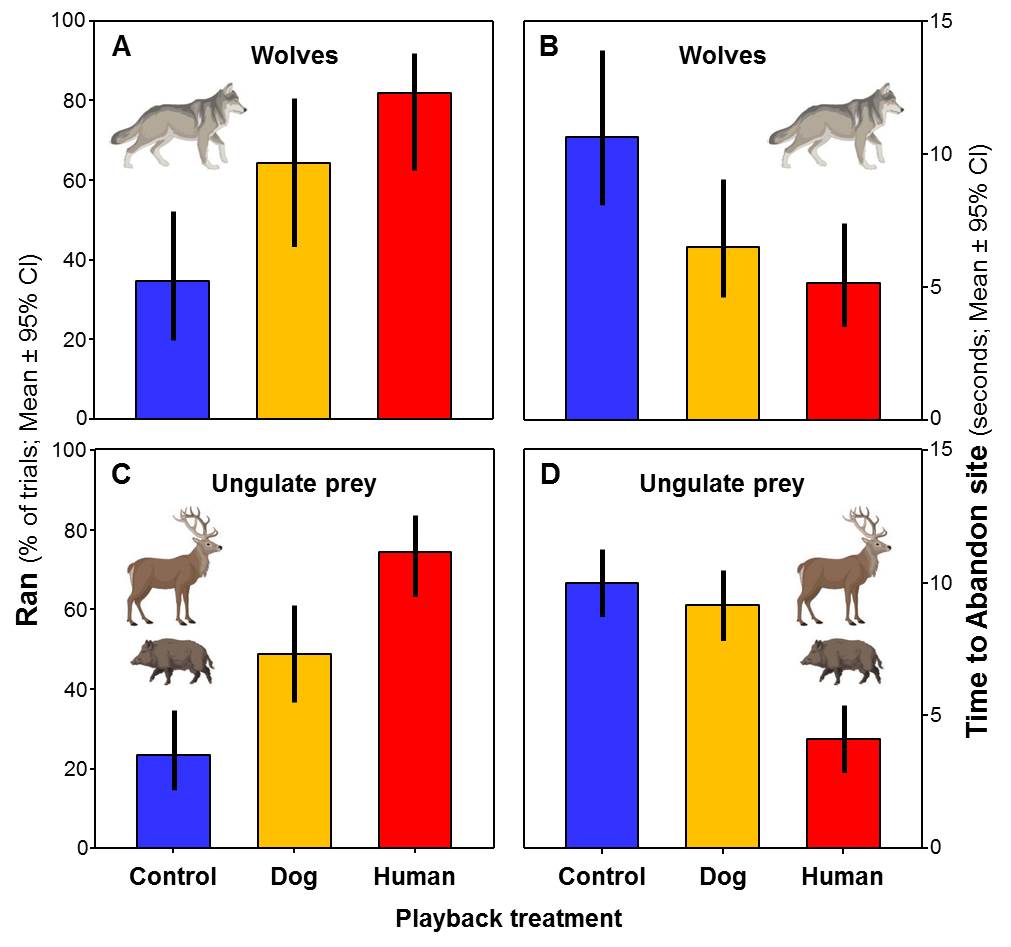

Professor Liana Zanette |
||
| Email: Mobile: Office: Mail: |
lzanette@uwo.ca +1-226-374-6334 +1-519-661-2111 ext. 88317 Department of Biology Western University Collip Building, Room 207 London, ON, N6A 5B7, CANADA |
|
Join us!For interests in collaborating with us, Please contact us via email. For more information on our past collaborations, please visit our Collaborations webpage and our Automated Behavioural Response systems (ABR Systems) webpage. For joining us as a MSc Candidate or a PhD Candidate, We are always interested in recruiting students to work on a variety of projects within the context of our current major research program. Please fill in the Potential Grad Student Questionnaire and forward it to us via email, together with your C.V. and a brief (up to 2 page) outline of the kind of research you envisage conducting in our lab. Please also send your transcripts as an attachment. Transcripts from the web are fine (i.e., we do not require official transcripts). For conducting an undergraduate Honours Thesis Project in our lab (Dept. of Biology only), Please contact us via email. State your research interests and career goals after graduation, attach your C.V., as well as attach your academic transcript. Transcripts from the web are fine (i.e., we do not require official transcripts). |
||
| For
volunteer opportunities, Please visit the Department of Biology's undergraduate page for information on awards and research. You can join us as a work study student, an award holder (such as a USRA), or you can directly contact us via email to see if there are any current opportunities available. A weekly commitment of a 4 hour shift is usually required. Volunteers in the past have had the opportunity to gain experience working with a variety of species in activities such as...
|
||
Fear of the “big bad wolf” dominates the discourse on human-wildlife conflict. Humans fear wolves, and fear wolves “losing their fear” of humans – because if they fear us, they avoid us, and that protects us. Legal protection of wolves has been alleged to permit the emergence of “fearless” wolves. We conducted an unprecedented experiment demonstrating that wolves fully retain their fear of humans, even where they are legally protected. Our results help re-focus the discourse on human-wolf conflict, from ostensibly fearless wolves, to human food subsidies better explaining why fearful wolves ever risk encounters with the human “super predator”.
